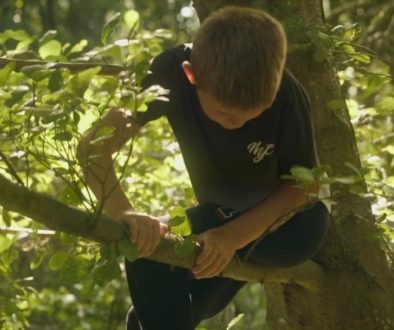Digital detoxing: Why we limit screen-time at the farm
The immersive world of our phones creates constant excitement that can become so addictive that ordinary, and sometimes even fun activities, seem boring and less stimulating. Whether it is social media or checking a message, screen-time increases dopamine levels in young people which can have unintended impacts. Relying on dopamine through our phones can shape habits and attention levels in ways that do not support emotional well-being.
This is not to say that children should not have phones, as safety considerations are important. At Solidarity Farm contact information readily available and staff consistently follow safety procedures.
Phones and long periods of screen-time can become an easy distraction from being present with your feelings and practicing mindfulness. John Harrison, founder of Solidarity Farm, said, “one of the best things we have done is to ask young people to leave phones and technology at home so that they can be fully present experiencing all the farm has to offer.”
Well-being and Natural Dopamine
Natural dopamine regulation comes from exercise, in-person interactions, time spent outdoors, creative play, and more. All of these experiences support better mental well-being with a sustainable release of dopamine.
At Solidarity Farm, there are many activities to engage with that phones are hardly missed.
Natural dopamine regulation at the farm includes: interacting with the animals; feeding the hens; climbing trees; exploring; building hammocks; arts and crafts; animal care; gardening; and learning farm maintenance. Engaging in these activities fosters feelings of achievement, enjoyment, and encourages self-efficacy.
Hands-On Happiness
The removal of technology allows for enhanced focus and concentration of farm activities without numerous notifications buzzing. Importantly, it also boosts self-awareness and reflection being in the calm and peaceful environment. Solidarity Farm strives for the best in young people to ensure they feel confident, appreciated and part of the community. When young people set aside their phones, there is hope that they will also feel part of something wider. A hope that they feel as though they can tackle the world and have a place in it, especially for those who may struggle with mental health or face exclusion.
By leaving phones at home, young people are given the chance to reconnect with themselves, with nature, and with those around them to gain the resilience to thrive in the farm and beyond.
Image Credit (Pixabay: Lukgehr)




